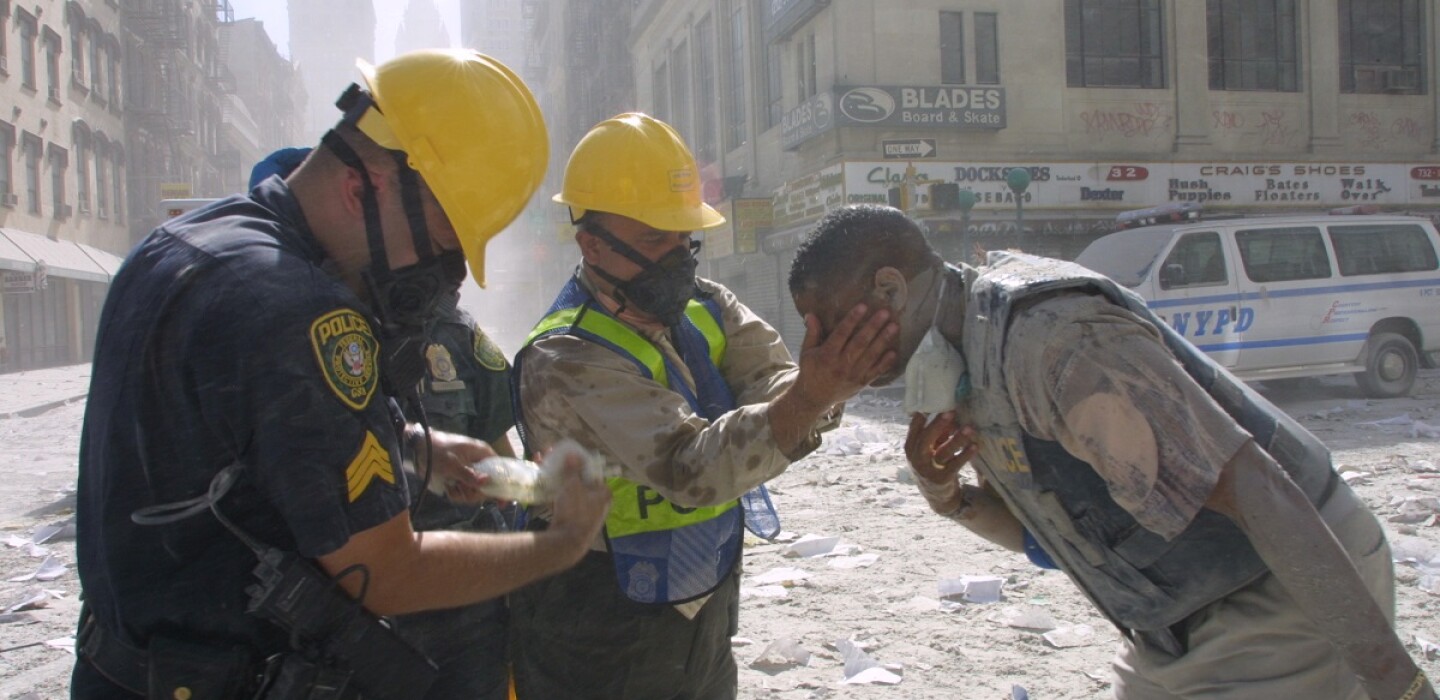
Sick 9/11 Responders Facing ‘Nightmare’ of Problems
(TNS) – A change in the companies managing health care for more than 118,000 people sickened by the 9/11 attacks has proven a nightmare for many enrolled in the program.
Obtaining medicine and getting other treatment is difficult for people like ex-volunteer firefighter and Marine veteran Dan Moynihan , who spent a month working at Ground Zero. Toxins from the rubble and the surrounding area gave Moynihan recurrent cluster headaches that are sometimes called “suicide” headaches because they’re extremely painful and can land their sufferers in the hospital.
Moynihan’s doctor has prescribed him oxygen to stave off the headaches. If that doesn’t work, Moynihan says, he can take a prescription medication to avoid a trip to the emergency room.
He gets both of those treatments through the World Trade Center Health Program, which, since he lives part of the year in Hawaii , he accesses through the program’s National Provider Network.
But this past August, the CDC switched up the contractors who run the national program for some 25,000 responders and survivors outside of the New York area and the prescription drug benefits for the entire program.
Moynihan said the switch caused him two problems — his oxygen provider was not in the network of the new national program contractor, MCA Sedgwick, and the new pharmacy benefit manager, Express Scripts, wouldn’t approve his headache medicine.
It took Moynihan more than a month to get those two basic needs met. In the meantime, he said, he was forced to seek treatment in ways that cost a lot more than breathing oxygen and taking headache pills.
“I had to get at the ER what I couldn’t get at home,” said Moynihan, who was twice admitted to the hospital in August and September.
Numerous other first responders and attack survivors say their long-time doctors are not in the MCA Sedgwick network, and that they have difficulty getting prescriptions from Express Scripts.
They even have problems contacting anyone for help. David Maliglowka , a former NYPD officer who did recovery work at Ground Zero and now lives in Florida , said he has to spend hours on the phone to access his doctors, most of whom are not in the MCA Sedgwick network.
When he does get someone on the phone, “nobody seems to know what they’re talking about,” Maliglowka said.
Susan Sidel , who lives near Boston but lived on Varick St. on 9/11 and got injured volunteering during the clean-up, said MCA Sedwick’s phones did not work when she started dealing with the company.
“How can you not have phones up when you’re opening your business? I don’t get it,” Sidel said.
The process for filling prescriptions has been similarly challenging since Express Scripts won the contract to provide pharmacy services, members of the health program said.
James Sherry , who takes three medications for his 9/11-linked prostate cancer, said he was denied two of them because Express Scripts declared that Sherry’s doctor in the 9/11 health program was not authorized to prescribe for him, even though that’s who had prescribed his drugs for years.
Sherry had to track down another doctor on his own to get the drugs he needed.
“I made 17 calls,” he said.
Advocates were concerned the agency went about the process of hiring new contractors as it was dealing with COVID.
The CDC’s effort to find a new back-office manager for the 9/11 health plan went awry. The $100 million contract with the new administrative services provider initially went to a company based in Alabama called Cahaba Safeguard Administrators .
Two companies that lost the bidding filed objections with the Government Accountability Office. But even before the GAO ruled on the objections, the CDC took back the Cahaba contract. Cahaba is in court seeking to have its contract restored.
The decision to change contractors in the midst of the COVID crisis “seemed like a very untimely decision,” said Scott Amey of the Project on Government Oversight. “And as the new contractors take over, we’ve seen problems in all three.”
The CDC declined to explain why it sought new providers for the 9/11 health plan. It also declined to address questions directed to its Office of Acquisition Services , which handles contracts.
Instead, it referred questions to the National Institute of Occupational Safety and Health , which oversees the World Trade Center program, but has no role in the contracts.
A spokeswoman for NIOSH said the Trade Center program was aware of the problems, and was working with the new providers to iron them out. Some survivors and responders agreed that the program was doing what it could, but still wondered why the CDC contracting office chose to replace the previous contractors to let it all happen.
Lisa Firestone , the president of MCA Sedgwick, said in a statement that the company was boosting efforts to get more doctors and other providers in its network, and beefing up training and outreach for both workers and members.
“With any change in a provider network, there will be a learning curve,” Firestone said. “There have been times where we were unable to confirm network participation with the providers, resulting in delayed access to care. We are also implementing strategic changes in the call system to support a better member and provider experience.”
An Express Scripts representative did not provide answers to questions.
In the meantime, 9/11 survivors and responders said they’ll do what they’ve always done, and push through.
“It’s one thing after another. It’s frustrating, I’ll tell you, it is,” said Maliglowka. “I know a lot of guys who really went through some real messes, and they’re totally disgusted.”
©2022 New York Daily News. Visit nydailynews.com. Distributed by Tribune Content Agency, LLC.


Average Rating